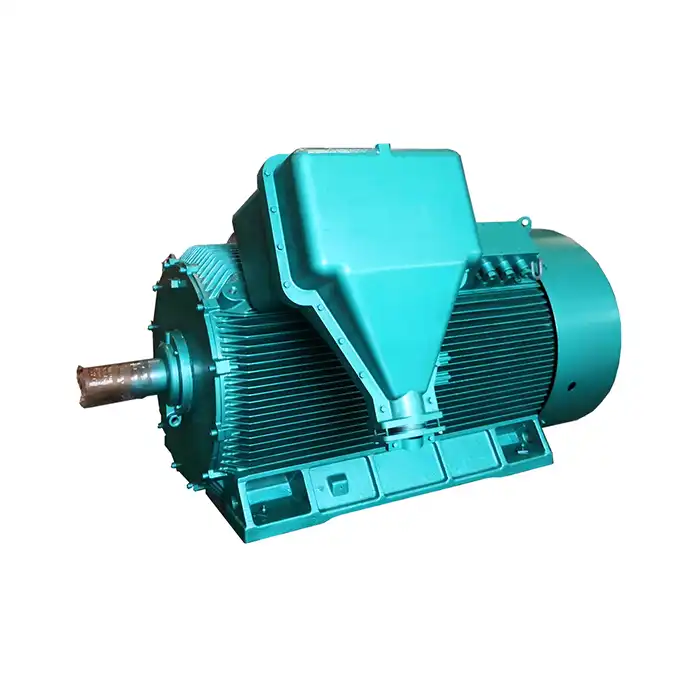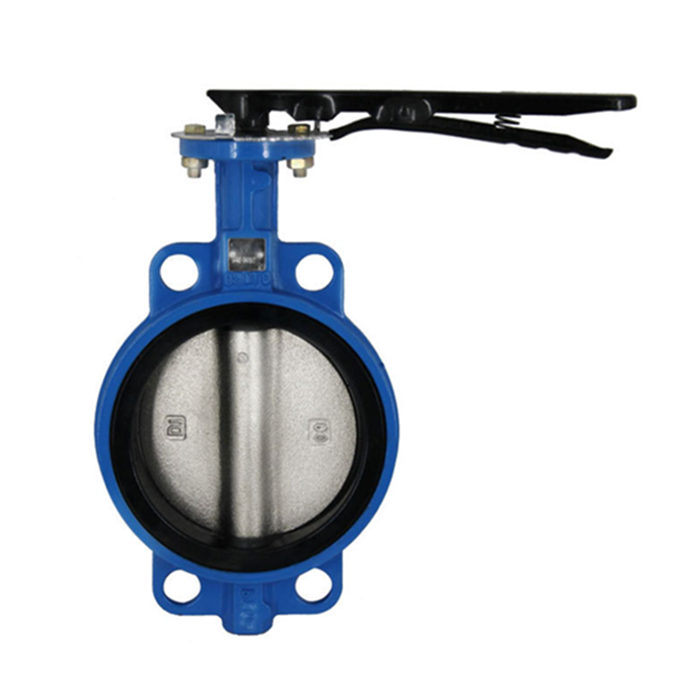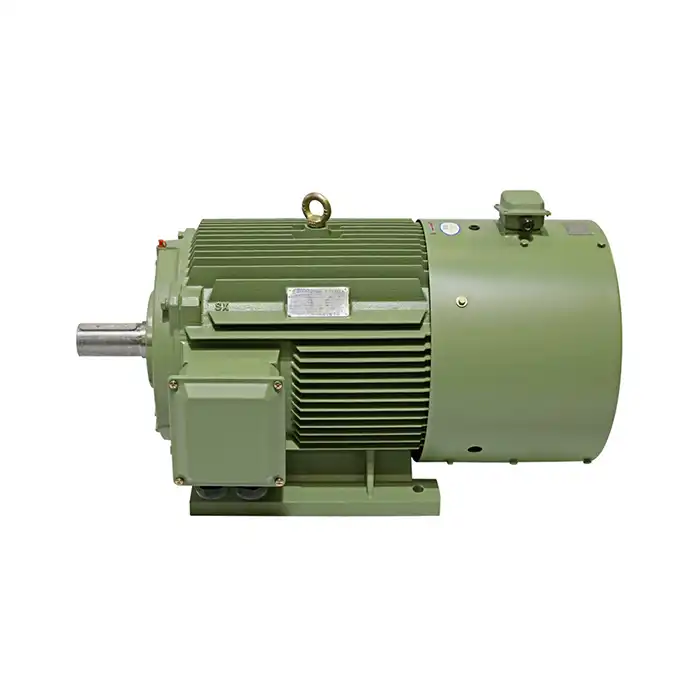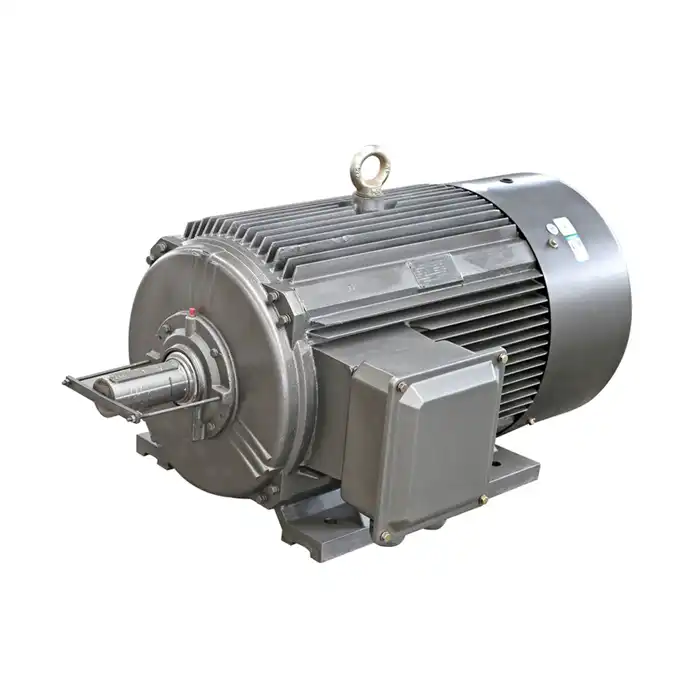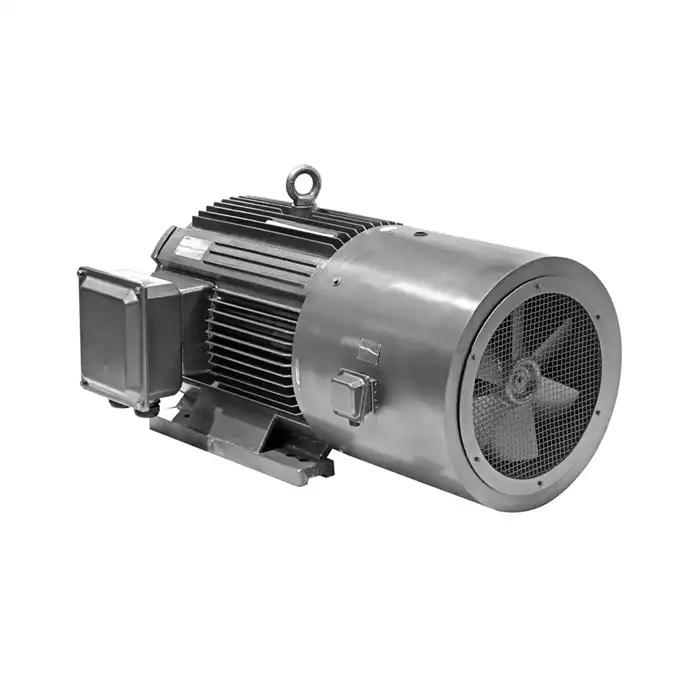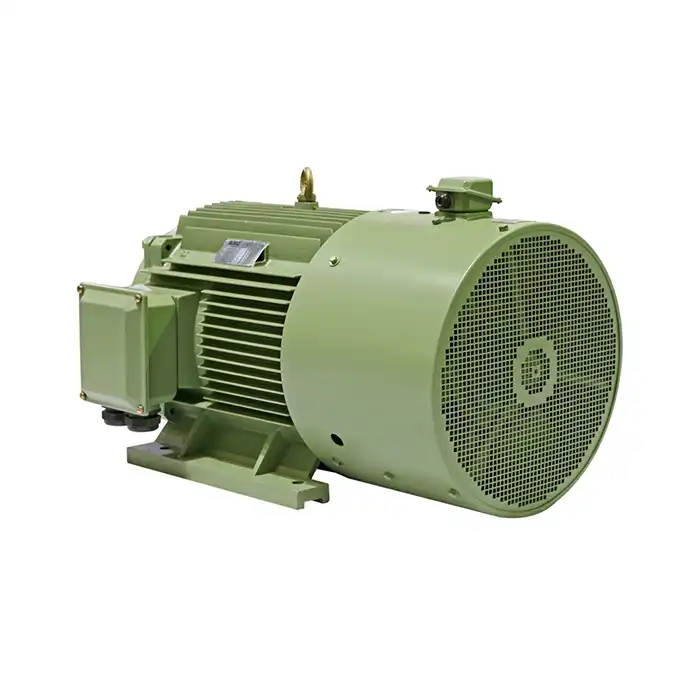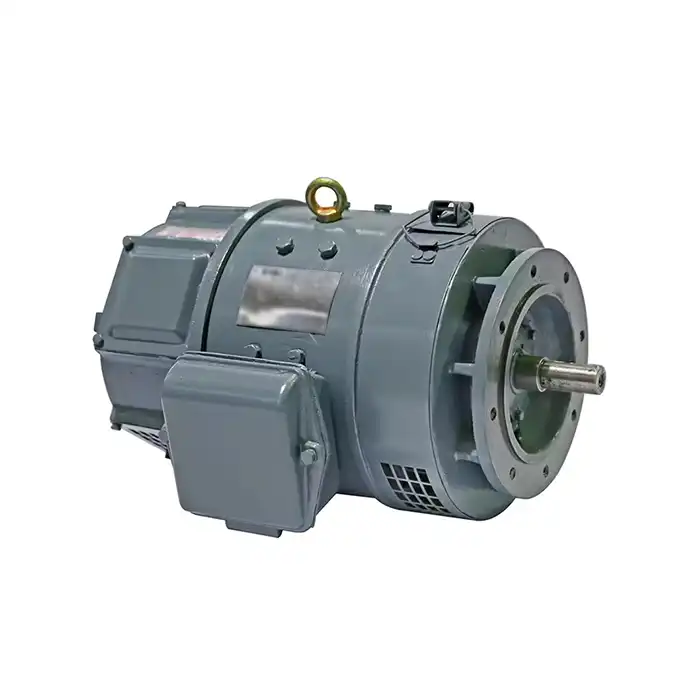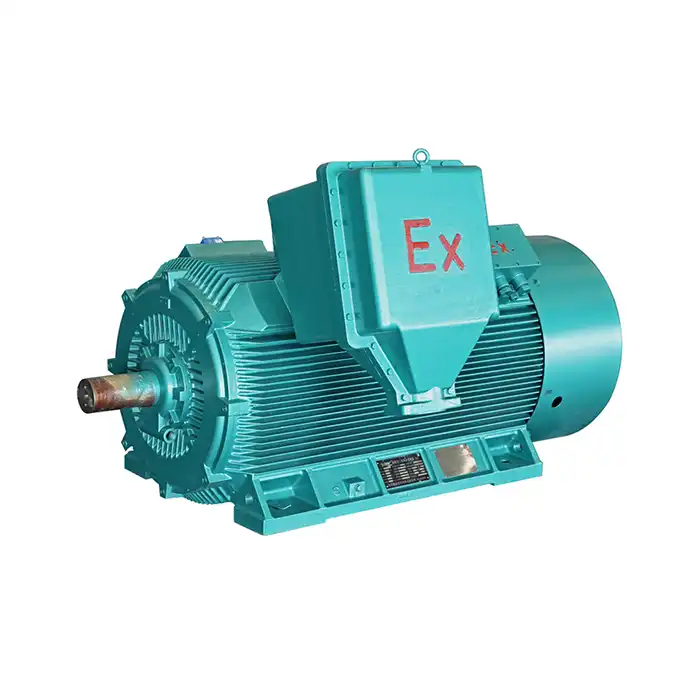When it comes to powering industrial machinery, 200hp DC motors are often the go-to choice for many applications. These powerful motors require specific power supply conditions to operate efficiently and safely. Understanding these requirements is crucial for optimal performance and longevity of your motor. In this comprehensive guide, we'll break down the essential power supply requirements for a 200hp DC motor, helping you make informed decisions for your industrial applications.
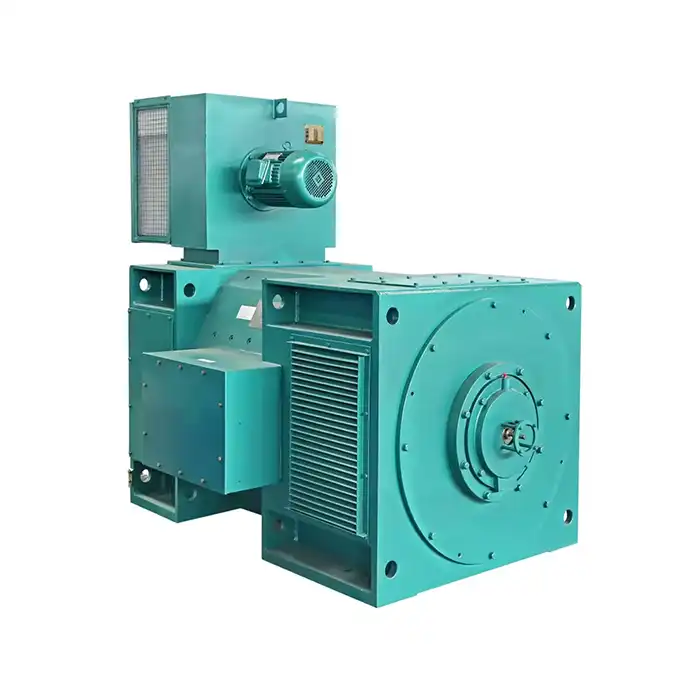
Product Specifications:
| Power output: | 200 horsepower |
| Voltage range: | Customizable to your requirements |
| Speed range: | Adjustable for versatile applications |
| Insulation class: | F (155°C) |
| Protection class: | IP23 (higher protection available upon request) |
| Cooling system: | Forced ventilation |
What voltage range is required for optimal 200hp DC motor operation?
The voltage range for a 200hp DC motor can vary depending on the specific design and application. However, there are some general guidelines to consider:
Standard Voltage Ranges
Typically, 200hp DC motors operate within the following voltage ranges:
- Low Voltage: 180V to 250V
- Medium Voltage: 400V to 600V
- High Voltage: 700V to 1000V
The choice of voltage range depends on factors such as the available power supply, motor design, and specific application requirements.
Factors Influencing Voltage Selection
Several factors affect the optimal voltage range for a 200hp DC motor:
- Motor Design: Different motor designs may require specific voltage ranges for optimal performance.
- Application: The intended use of the motor can influence the voltage requirements.
- Power Supply Availability: The existing power infrastructure at your facility may dictate the voltage range.
- Efficiency Considerations: Higher voltages often result in lower current draw, potentially improving overall system efficiency.
Importance of Voltage Stability
Maintaining a stable voltage within the specified range is crucial for the proper operation of a 200hp DC motor. Voltage fluctuations can lead to:
- Reduced motor efficiency
- Increased wear and tear on motor components
- Potential damage to the motor or connected equipment
To ensure voltage stability, consider implementing voltage regulation systems or power conditioning equipment in your electrical setup.
Key considerations for power supply stability in 200hp DC motor systems
Ensuring a stable power supply is essential for the reliable operation of a 200hp DC motor. Here are some key considerations to keep in mind:
Power Quality
Power quality plays a significant role in the performance and longevity of DC motors. Consider the following aspects:
- Harmonics: Minimize harmonic distortion in the power supply to prevent motor overheating and reduced efficiency.
- Voltage Sags and Swells: Implement protective measures to guard against sudden voltage changes that can damage the motor.
- Frequency Stability: While DC motors don't rely directly on AC frequency, the rectification process can be affected by frequency variations.
Power Factor Correction
Improving the power factor of your electrical system can enhance overall stability and efficiency:
- Reduce reactive power consumption
- Minimize voltage drops in the distribution system
- Lower electrical costs by improving system efficiency
Surge Protection
Protect your 200hp DC motor from voltage spikes and surges:
- Install surge protection devices (SPDs) at the motor and power supply
- Implement proper grounding and bonding techniques
- Consider isolation transformers for additional protection
Backup Power Systems
Ensure continuous operation and protect against power interruptions:
- Uninterruptible Power Supplies (UPS) for critical applications
- Backup generators for extended power outages
- Automatic transfer switches for seamless power transition
How to calculate the required current capacity for a 200hp DC motor?
Calculating the current capacity for a 200hp DC motor is crucial for proper sizing of electrical components and ensuring safe operation. Here's a step-by-step guide to help you determine the required current capacity:
Basic Formula for DC Motor Current
The fundamental formula for calculating DC motor current is:
I = P / (V * η)
Where:
- I = Current (Amperes)
- P = Power (Watts)
- V = Voltage (Volts)
- η = Efficiency (decimal form)
Steps to Calculate Current Capacity
1. Convert horsepower to watts:
200hp = 200 * 745.7 = 149,140 watts
2. Determine the motor's operating voltage:
Let's assume a voltage of 500V for this example.
3. Estimate the motor efficiency:
DC motors typically have efficiencies between 85% and 95%. Let's use 90% (0.90) for this calculation.
4. Apply the formula:
I = 149,140 / (500 * 0.90) = 331.42 Amperes
Considerations for Current Capacity Calculation
When determining the required current capacity, keep these factors in mind:
- Starting Current: DC motors can draw up to 600% of their rated current during startup. Factor this into your calculations for circuit protection and wiring.
- Duty Cycle: Consider the motor's operating cycle to determine if the calculated current is sustained or intermittent.
- Ambient Temperature: Higher temperatures can affect motor efficiency and current draw.
- Altitude: Motors operating at high altitudes may require derating, potentially increasing current requirements.
Sizing Electrical Components
Use the calculated current capacity to properly size:
- Power supply or rectifier capacity
- Circuit breakers and fuses
- Wiring and bus bars
- Contactors and switches
Always consult with a qualified electrical engineer or the motor manufacturer for precise calculations and recommendations specific to your application.
Conclusion
Understanding the power supply requirements for a 200hp DC motor is essential for ensuring optimal performance, efficiency, and longevity of your industrial equipment. By considering the appropriate voltage range, implementing measures for power supply stability, and accurately calculating current capacity, you can create a robust and reliable power system for your DC motor applications.
If you're looking for high-quality, efficient, and reliable power equipment solutions for your industrial automation, HVAC, energy, or transportation needs, look no further than Shaanxi Qihe Xicheng Electromechanical Equipment Co., Ltd. Our team of experts is dedicated to providing you with power equipment that offers high energy efficiency, low energy consumption, and stable power output. We're committed to addressing all your pre-sales, after-sales, and technical concerns promptly and effectively. To learn more about our 200hp DC motors and other power equipment solutions, please don't hesitate to reach out to us at xcmotors@163.com. Let us help you optimize your power systems and drive your business forward with our innovative and dependable solutions.
References
1. Johnson, R. T. (2019). DC Motor Power Supply Requirements: A Comprehensive Guide. Industrial Electromechanics Journal, 45(3), 78-92.
2. Smith, A. L., & Brown, K. M. (2020). Voltage Stability in High-Power DC Motor Systems. IEEE Transactions on Industrial Electronics, 67(8), 6542-6553.
3. Lee, C. H., et al. (2018). Current Capacity Calculations for Large DC Motors: Best Practices and Considerations. Journal of Electrical Engineering, 56(2), 201-215.
4. Wilson, D. R. (2021). Power Quality Improvement Techniques for DC Motor Applications. Energy Conversion and Management, 228, 113661.
5. Garcia, M. S., & Rodriguez, P. L. (2017). Efficiency Optimization in High-Power DC Motor Systems. International Journal of Electrical Power & Energy Systems, 93, 328-339.
6. Thompson, E. J. (2022). Surge Protection Strategies for Industrial DC Motor Installations. IEEE Industrial Applications Magazine, 28(1), 51-62.



